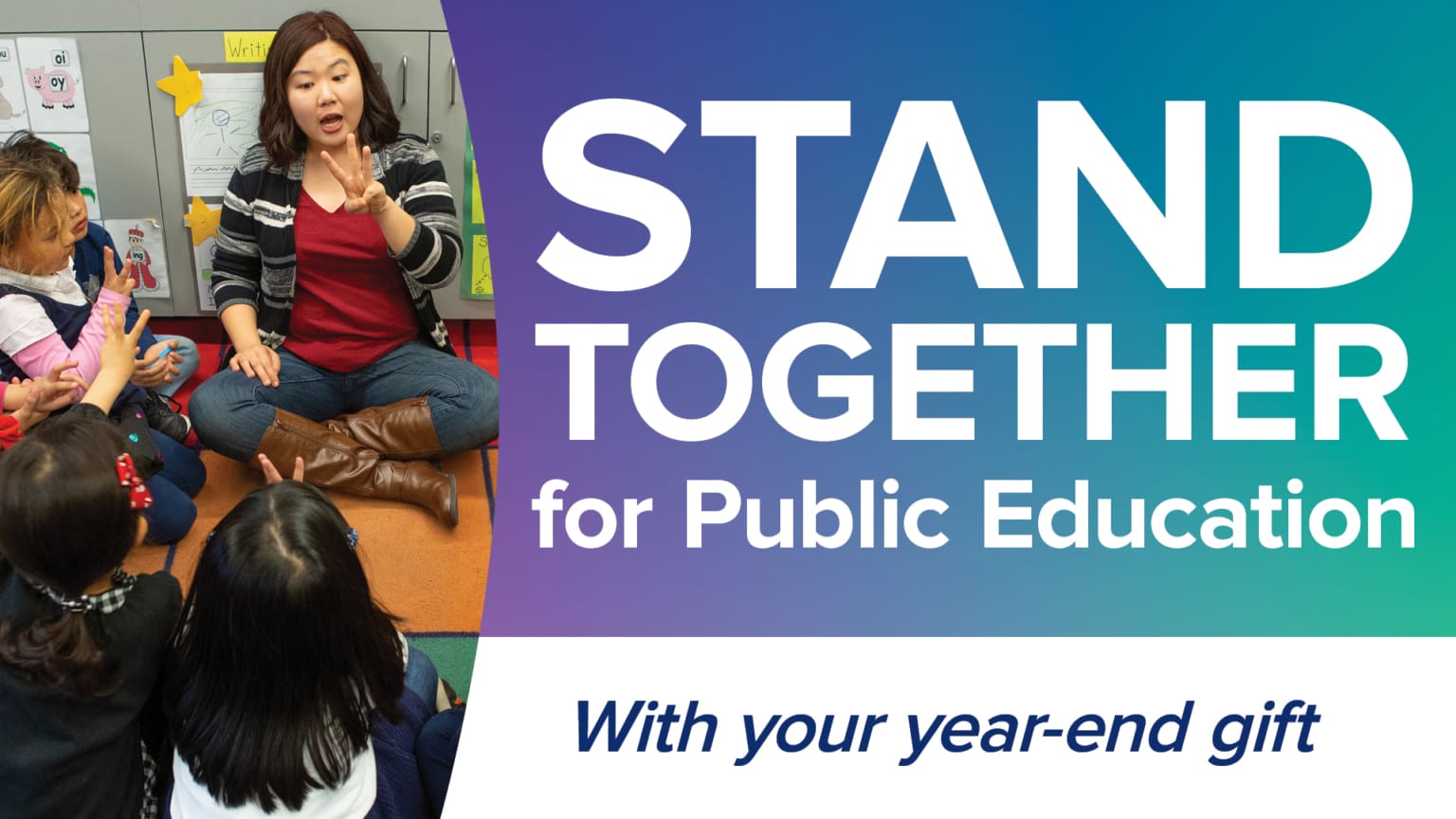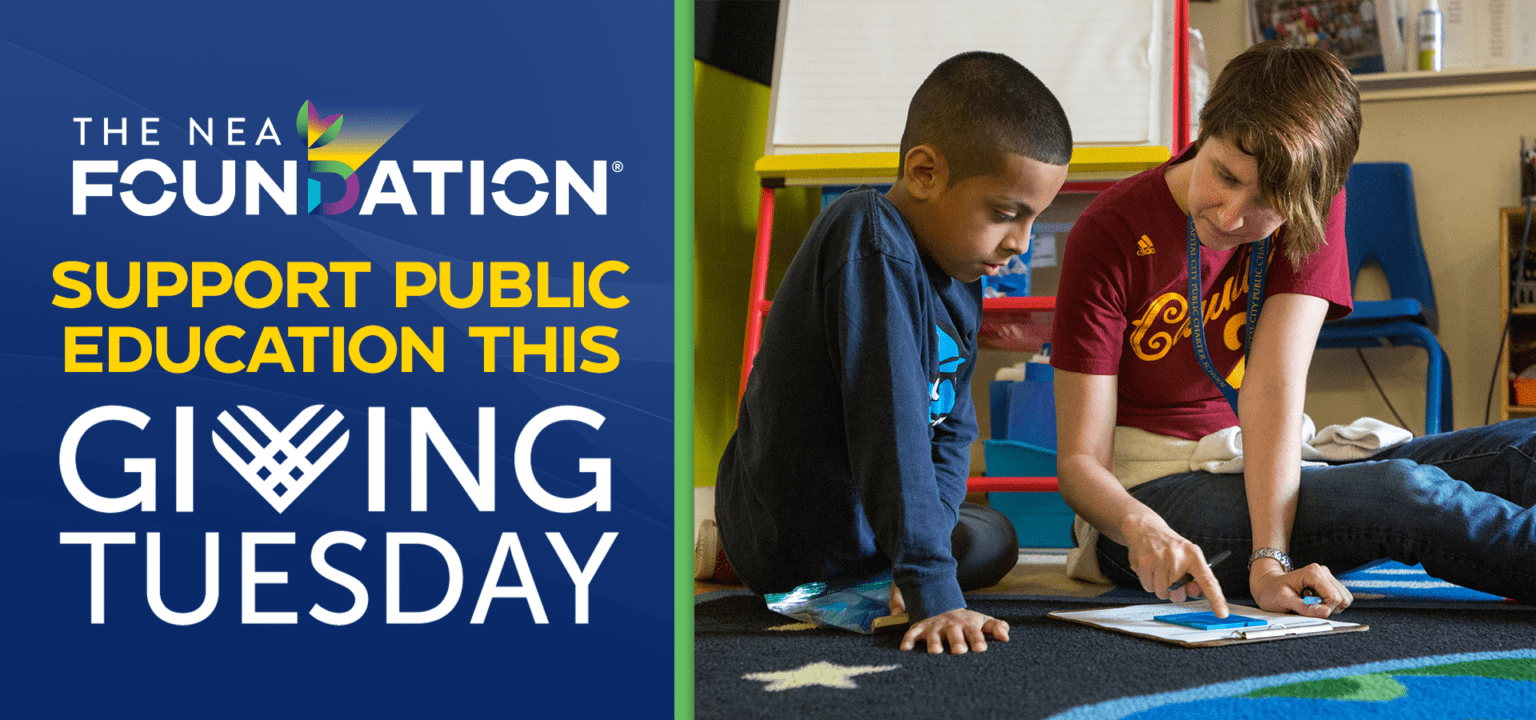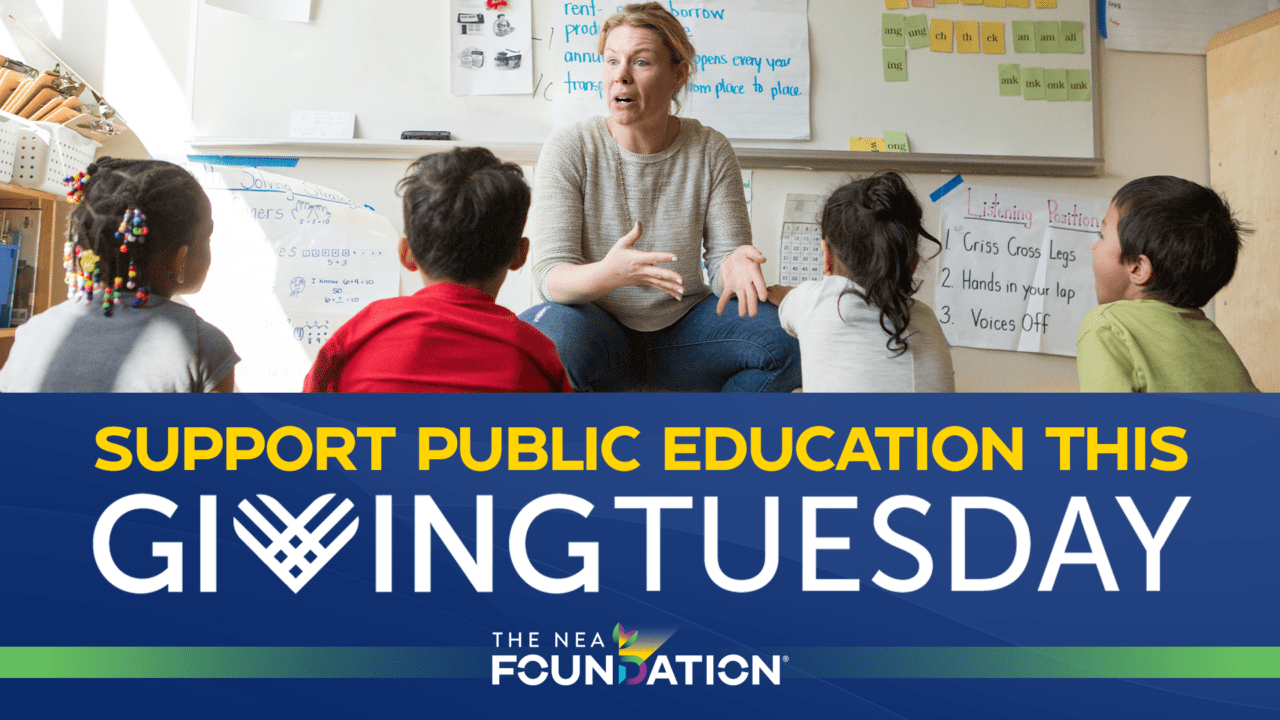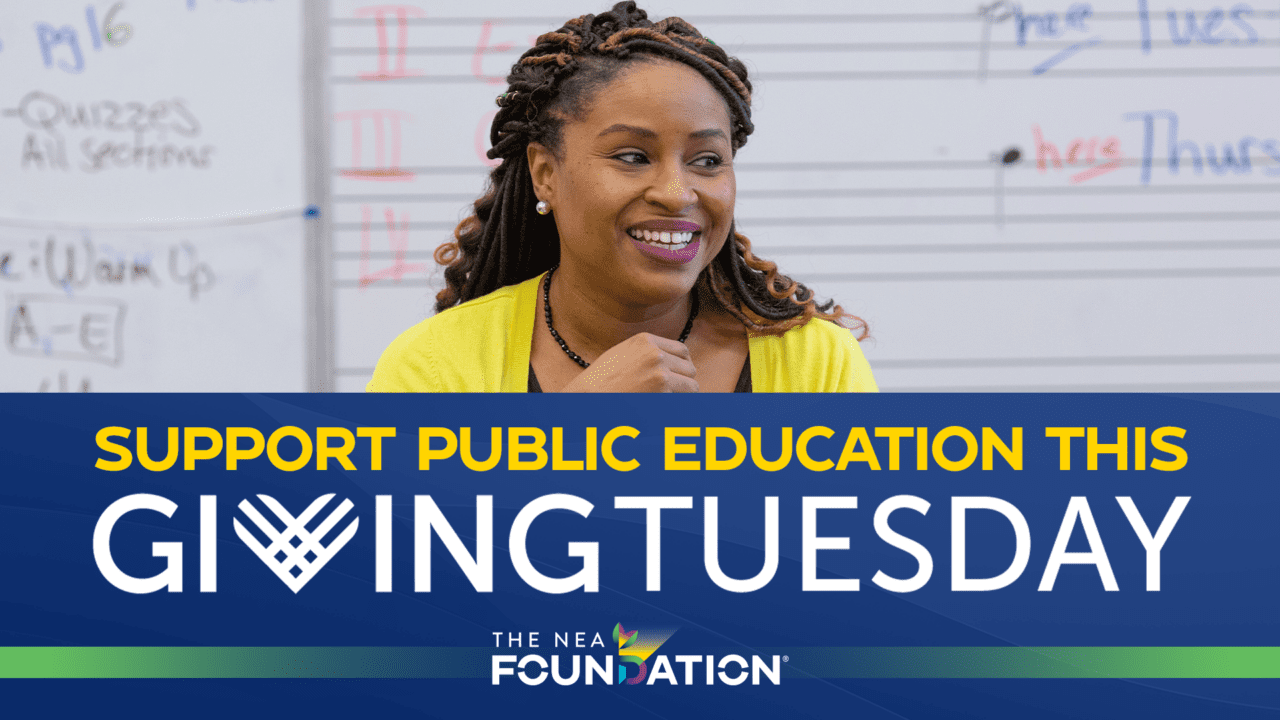By Imadé Borha, Director of National Campaign Communications at NYU Metro, a HEAL Together Core Partner
This is the second in a series of guest blog posts by HEAL Together. HEAL Together is an initiative of Race Forward in partnership with NYU Metro Center and Schott Foundation for Public Education. Together, they are building a movement of students, educators, parents, and school board members in school districts across the United States who believe that an honest, equitable, and fully funded public education is the foundation for a just, multiracial democracy.
“The youth are coming. We’re taking over. And we’re going to lead Florida the right way.”
Florida Student Power director Paula Muñoz said this in February while surrounded by more than 100 youth across the state who gathered to meet with legislators for the Youth Power at the Capitol mobilization. The Capitol was the final stop of a bus tour that included Miami, Orlando, and Tampa. At each stop, Florida Student Power welcomed students with protest chants and political education. By the time students marched to the Capitol steps, they were ready to announce the release of Florida’s Youth Agenda which presents a legislative vision rooted in protecting student free speech and environmental, migrant, and reproductive rights.
Young leaders across the country are championing inclusive and compassionate education systems that reshape the future of public schools. At the heart of this movement is youth leadership training that empowers students to demand the schools they deserve. Youth-led organizations are preparing first-time voters to tell legislators how bills impact students. This has led to astounding results. In the 2024 legislative session, 94% of bills that the Georgia Youth Justice Coalition (GYJC) advocated against were successfully blocked. This includes a bill to arm teachers instead of the community safety GYJC demands, which includes more counselors and fully funded school staff.
GYJC press secretary Nala North helps students share their dreams for public education with reporters covering legislative bills. Nala collaborated with GYJC’s Advocacy Team to prepare youth leaders with bill talking points and guidance on Capitol lingo. With GYJC mostly comprised of part-time staff under the age of 22, many would wonder how this organization became a powerful agent of change at the Capitol. What is their secret to success?
“I think our secret is [that] we try to encourage people to be comfortable with being new and not knowing,” said Nala, who emphasized the need to create space to ask questions. “We really want to make sure that when people are going to the Capitol that they can at the very least walk out and be like: I never understood how accessible that was to me [until now].”
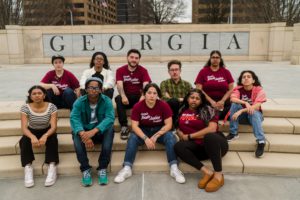
Georgia Youth Justice Coalition Day of Action
Captured at Georgia Capitol Building in Atlanta, Georgia, on February 27, 2024. — by Kevin Lowery for @weymouthwatson
The journey to becoming GYJC’s press secretary began with Nala’s resolve to find a school where she could feel like she belongs. Nala left an unwelcoming predominately white high school for a virtual program in her city that was more diverse. She learned at home surrounded by her family as she sought to reclaim her father’s native Spanish language. As a child, Nala’s father was forced to speak English in order to stay in school. However, in Nala’s program, she took Spanish courses and instantly connected with their peers.
“It was the first space that I felt like, I feel safe here. And like, wow! These are my people!” said Nala.
Youth are building communities around their dream to create schools that are an extension of home. Florida Student Power has a We Keep Us Safe component to their campaigns that focus on meeting the rapid response needs of students, keeping immigrant communities safe through Know Your Rights and Community Safety Planning workshops, and building organizing power for students to fight for safe schools.
“Ordinances will pass,” said Muahbohn Dahn, Youth Political Organizer at Florida Student Power, “but at the end of the day we have to be grounded in the fact that we, as a community, keep us safe, not our politicians, not our legislators.”
Florida Student Power does community canvassing events and will have its Power University political education program this summer. Muahbohn will support Orlando students who want to join the movement. Funding youth training programs like Power University is vital to producing the next generation of leaders.
This training can help youth advocate for each other. Community is what supported Muahbohn when she joined her peers in marching to Florida’s Capitol for inclusive public schools. Muahbohn spoke with legislators, and at times she felt dismissed and invalidated.
“We had some [intense] emotions, said Muahbohn, “because it’s not fun to sit in front of people and say, You know, care about me, care about my community, and for them to just reject that. It’s hard.”
Muahbohn relied on her colleagues to amplify her voice in repeating ignored questions to elected leaders. This multiracial solidarity reflects the schools that Muahbohn dreams of. As a high school student, a white teacher told her that white educators didn’t want to teach at her high-performing school because of the large number of Black students. The schools that Muahbohn dreams of celebrate diversity as a strength while providing affinity spaces for students to feel understood by peers with similar backgrounds.
The future of higher education in Florida is unclear as public universities shutter DEI offices. Last year, Governor Ron DeSantis signed a bill that bans state colleges from funding diversity, equity, and inclusion programs. The impact of this bill is starting to take hold in public universities across the state. Despite this, Muahbohn does not give up hope. Florida Student Power has plans to pressure college administrators to keep privately funded DEI offices open while supporting students who are grieving the loss of DEI programs.
“I’m still staying rooted and in touch with the people around me. And that’s what keeps me hopeful because you never know what one conversation can do to change somebody’s mind,” said Muahbohn. “At the end of the day, we have to create community from a collective standpoint and understand that the power lies within us.”
Find the first installment in HEAL Together’s guest blog series at the link below:
THE NEA FOUNDATION IS COMMITTED TO FEATURING DIVERSE VOICES AND PERSPECTIVES ABOUT CRITICAL ISSUES FACING PUBLIC EDUCATION, STUDENTS, AND EDUCATORS. THESE VIEWS DO NOT NECESSARILY REFLECT THOSE OF THE NEA FOUNDATION.



